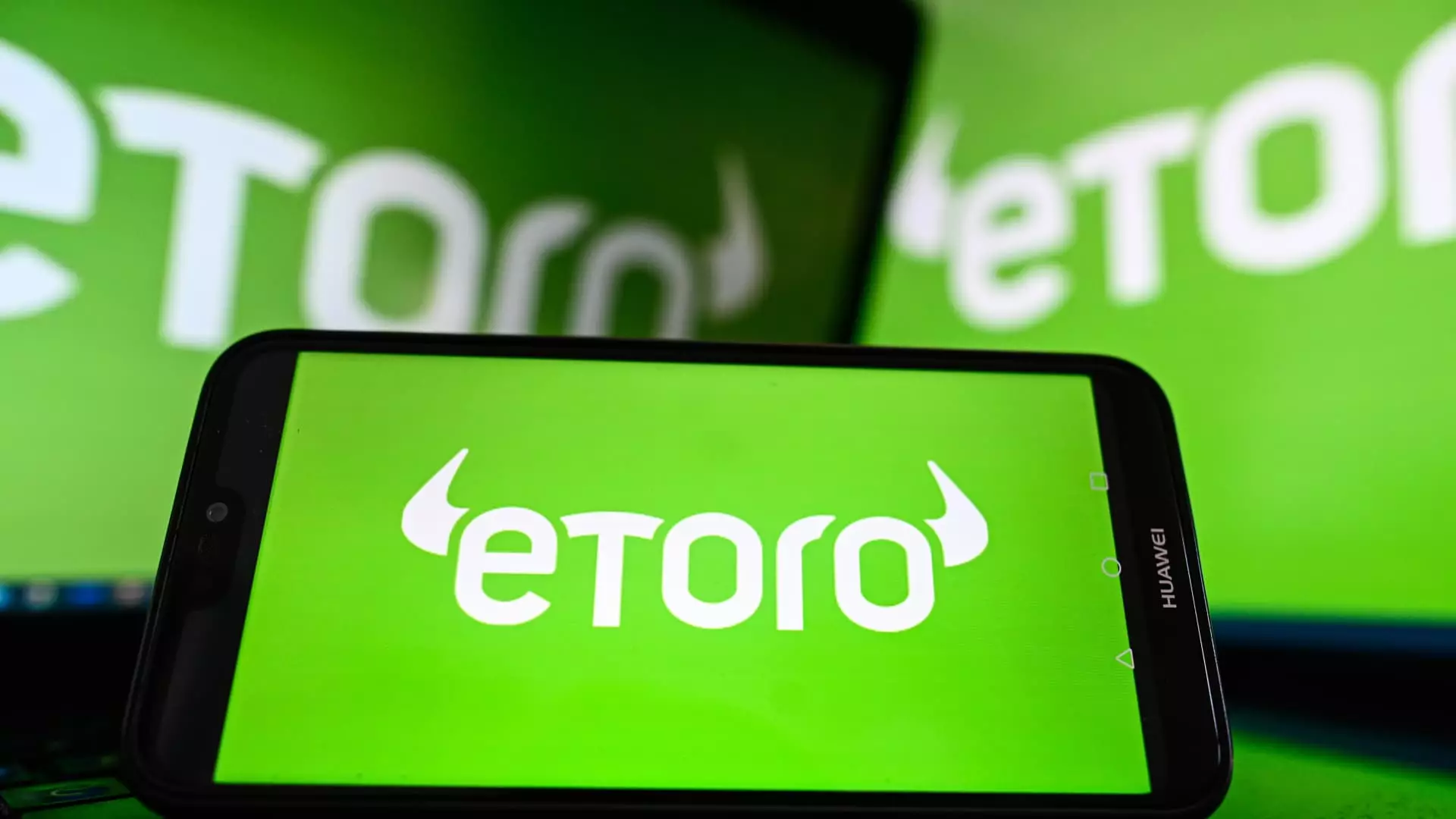The ascent of eToro, a key player in the brokerage world, represents a transformative moment in the financial technology (fintech) sector. Priced at a commendable $52 per share, eToro’s initial public offering (IPO) comes at a time when the market appears cautiously optimistic about new entrants. With an evaluated worth of approximately $4.2 billion following the sale of nearly 6 million shares, eToro’s strategy is indicative of a broader revival in the IPO landscape. This Israeli-based platform has made significant strides, particularly in the cryptocurrency domain, which is proving to be a lucrative sector for digital finance.
The financial volatility seen in past months, primarily due to rising interest rates and inflation concerns, had created a turbulent atmosphere for IPOs. President Trump’s return to the White House earlier in the year was anticipated to kickstart more IPO offerings, marking a potential uplift for fintech companies like eToro, Klarna, and StubHub. However, the specter of tariff uncertainties has loomed large, often forcing these companies to reconsider their public market strategies. This backdrop shows that while the future seems brighter, it’s essential for companies to tread carefully as they navigate potential pitfalls.
Strategic Moves in a Shifting Market
Though eToro initially postponed its IPO due to market volatility, its recent filing spokes volumes about the firm’s resilience and strategic overview. This is not eToro’s first dance with the public markets. There was an attempt to go public through a merger with a special-purpose acquisition company (SPAC) in 2022, but this plan was scrapped amid a deteriorating market environment. The determination to reopen discussions about going public, however, reflects the firm’s commitment to realizing its market ambitions. CEO Yoni Assia has been vocal about his vision for eToro, emphasizing the potential for growth in public markets: “We definitely are eyeing the public markets,” he stated, focusing on building relationships with key exchanges.
This optimism is justified given the company’s remarkable financial performance. eToro saw its net income soar dramatically last year from $15.3 million to $192.4 million. Such growth is impressive, particularly in a fintech market crowded with competitors like Robinhood and Webull, two names that have carved their niches in retail trading. Notably, eToro’s revenue from cryptocurrency trades has tripled, signifying a paradigm shift in consumer trading patterns and demonstrating how eToro is capitalizing on the burgeoning crypto sector.
Significant Backing and Future Prospects
The backing from institutional investors further fuels optimism surrounding eToro’s marketplace entry. The interest shown by industry giant BlackRock, which has expressed its willingness to purchase $100 million in shares, underlines investor confidence in eToro’s potential to scale and innovate. Such endorsements could attract even more capital and market attention, positioning eToro on solid ground as it makes its debut on the Nasdaq under the symbol ETOR.
As eToro moves forward with its IPO and strategic initiatives, the company’s diversified revenue model will play a crucial role in its expansion. The mix of trading fees, crypto revenue, and additional services such as currency conversion and withdrawals provides a robust financial foundation. This diversification not only mitigates risk but also enhances eToro’s appeal to a broader audience seeking seamless trading experiences.
Implications of eToro’s IPO for the Fintech Sector
eToro’s move into the public arena is emblematic of the evolving fintech landscape, where companies must adapt to rapid changes and consumer preferences. As it stands, eToro is not just participating in this evolution; it is leading the charge, particularly in the cryptocurrency space. The company’s robustness during economic fluctuations signals to investors that it can weather storms that might deter other market players.
Additionally, eToro’s success could embolden other fintech startups to explore public offerings, creating a new wave of IPOs that could enrich the sector. This potential ripple effect is crucial for maintaining investor interest and expanding the fintech market’s capabilities – especially in areas like digital trading and investment technologies.
As eToro prepares to embark on this new chapter, all eyes will be on its performance and adaptation capabilities amidst a turbulent economic landscape. Its trajectory will surely influence how emerging companies approach the tricky waters of public listings and market positioning.

